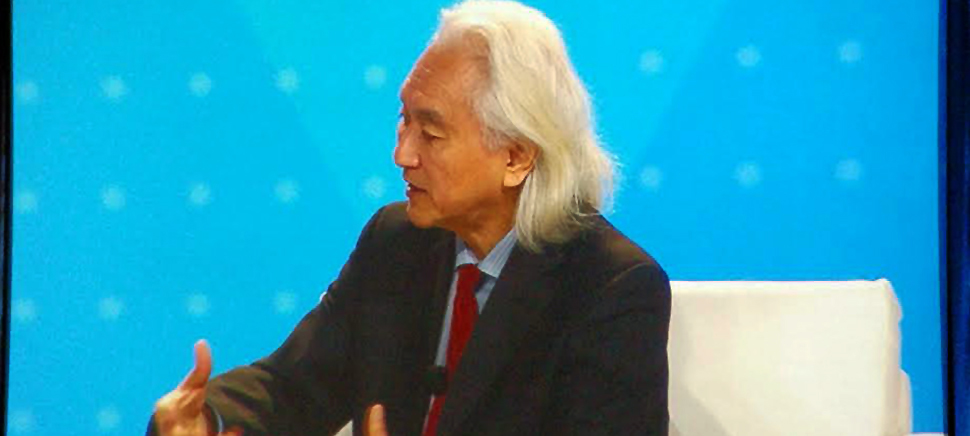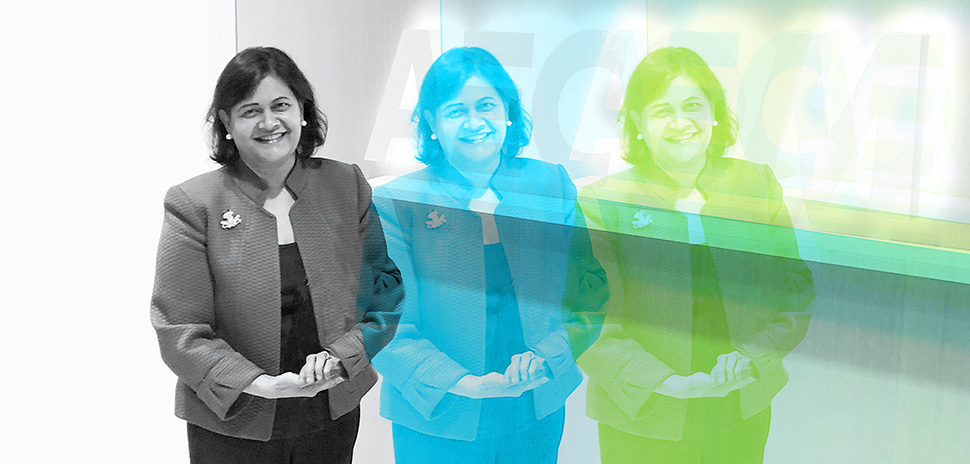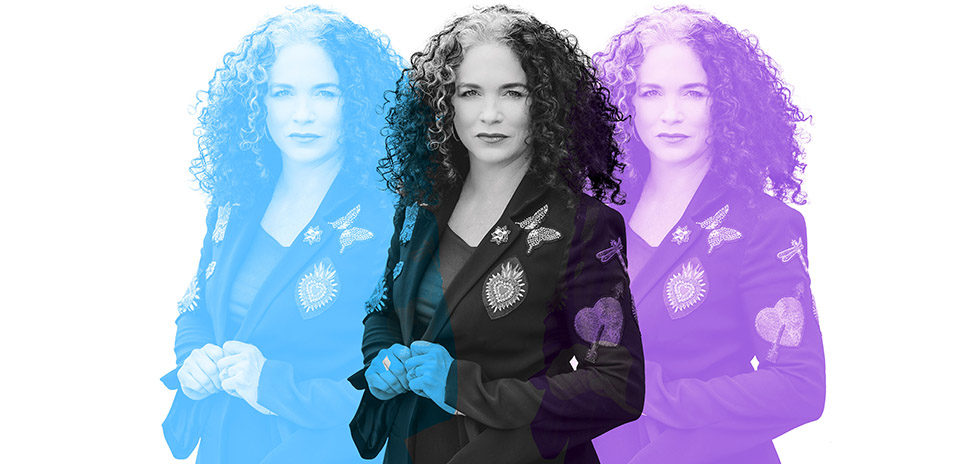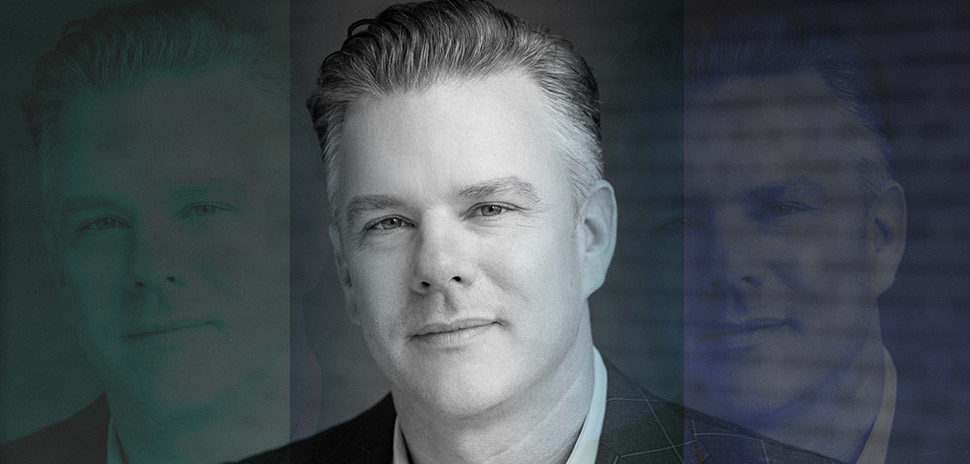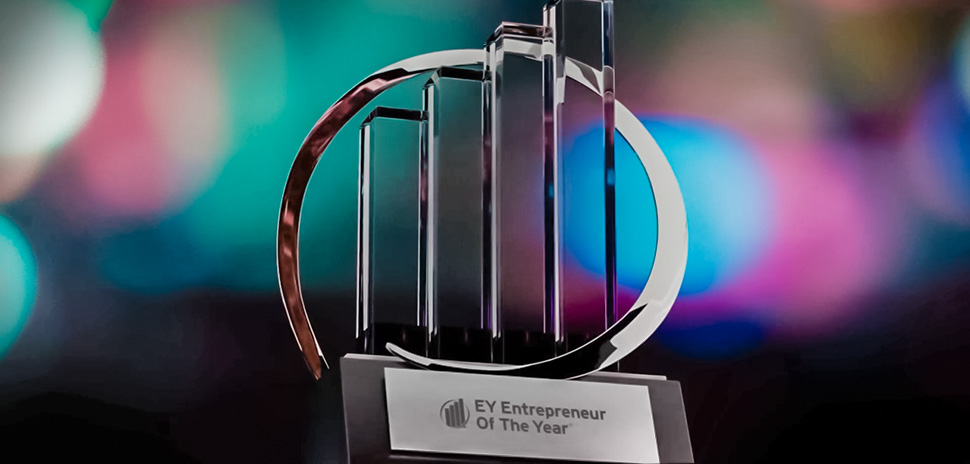Imagine seeing the internet through a contact lens. Virtual reality automatically showing a person’s profile as you walk up to them. Purchases and other actions executed literally in the blink of an eye. This far-fetched sci-fi idea would seem outlandish except it came from Michio Kaku, an author, physicist and futurist who has been anticipating the future of technology for decades.
Imagine being able to try on digital clothes or see your room with new furniture. Then, you buy it. Maybe you’re in the store. Maybe not.
“Why put it on when you can simply blink your contact lens and see the suit being worn on your body?” Kaku said.
Virtual reality has advanced rapidly in recent years but requires bulky goggles that either use a mobile device or have to be tethered to a computer.
“The next step is to put it right on the eyeball itself and you’ll be on the internet any time and any place.”
Michio Kaku on VR
“The next step is to put it right on the eyeball itself and you’ll be on the internet any time and any place,” Kaku said.
Kaku, known for his appearances on the Discovery Channel, History Channel and Science Channel, was the keynote speaker at the Shop.org Retail Digital Summit at the Kay Bailey Hutchison Convention Center Tuesday morning.
The conference room was full of hundreds of retail executives all wanting to hear Kaku’s take on the future of retail.
Even with advances in technology, Kaku believes there will always be a combination of e-commerce and brick and mortar stores because, for some items, consumers want to physically touch the item.
“We are descendants of hunters. We want proof of the kill,” Kaku said. “That’s why we will still have brick and mortar stores.”
From a consumer standpoint, capitalism will reach its peak through the Internet of Things and virtual reality by eliminating all the friction in life.
“Supply and demand become perfect,” he said. “When you want something, you get it. You want it customized, you get it. You want it today or tomorrow, you get it.”
There are downsides to this utopian future. Chief among them would be risks to privacy. Kaku said he and other researchers are working on a “quantum cryptography” that uses lasers to make connections on the Internet. If a hacker tries to break in, the laser is disrupted and nothing can be gained.
He envisions a future where the internet is like electricity, something everyone takes for granted these days. And there will be a free internet that’s available to everyone and the secure Internet that’s accessible to those who want to pay for it, such as large corporations, banks and the government.
“They’ll pay a premium for that second layer of the internet,” Kaku said.
“Technology isn’t going to replace humans, they simply augment humans.”
Michio Kaku
The retail landscape is changing fast and staying on top of it can be difficult. For executives, Kaku likened it to surfing on a rough sea. Don’t be the first to attack the wave—First adopters likely will get swept away. Follow right behind them, learn from their mistakes and ride the wave at just the right time. Go too early and you’ll wipe out. Wait too long and the wave has passed you by.
The bottom line is that people who can best integrate the digital and physical world will be rich. Some jobs will become extinct, the same way blacksmiths did.
The technology exists today to have a highway of drones flying through the sky completing delivery tasks. But there are legal hurdles, safety regulations and other challenges that have to be overcome, first, Kaku said.
That doesn’t mean there won’t be a need for delivery drivers for certain tasks.
“Technology isn’t going to replace humans, they simply augment humans,” Kaku said.
Delivering what’s new and next in Dallas-Fort Worth innovation, every day. Get the e-newsletter here.










